|
(2)Defects due to poor handling and
seasoning
There are different defects due to poor handling
and seasoning depending on whether the log have been converted
or not.
(a) Defects in timber which has not been converted
Shakes: Shakes are defects in logs, which have not been converted,
or in large timbers. There are a number of different 'shakes':
star, frost, heart, ring and cup shakes. Shakes are serious splits
between annual rings or along medullary rays. Tension forces
build up in the tree while it is growing because different parts
of the tree are growing at slightly different rates especially
if the tree grows on the slope of a mountain. If the trunk is
not seasoned properly, i.e. it is dried out too fast, then parts
of the timber will split or separate and will appear as star,
heart, ring or cup shakes. Also if the free is carelessly felled
where it is allowed to fall, perhaps over a rock or a fallen
free, these shakes can occur. Frost shakes occur when logs are
poorly stacked and left out in freezing weather, resulting in
the timber splitting along the grain.
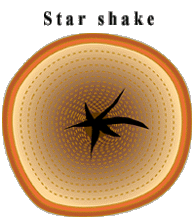 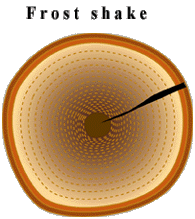
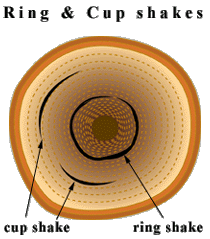
(b) Defects in converted timber due to
poor seasoning
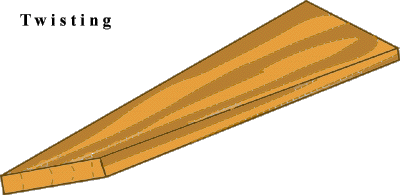
|
Twisting: the boards
warp and twist longitudinally (along the length of the board). |
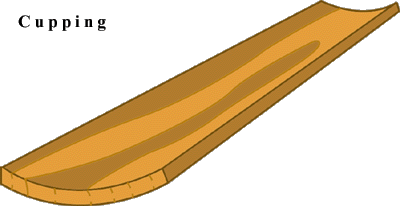
Cupping: cupping is warping across the width of the board.

|
Bowing: is
sagging along the length of the board. |
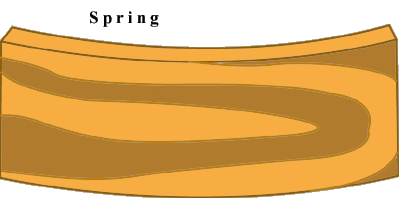
|
Spring: the
board remains flat but curves along it's length. |
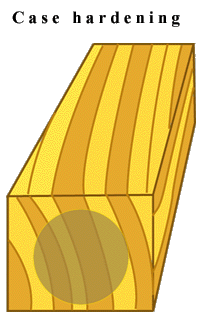
Case-hardening:
the board is dried too fast leaving the outer layer of the board
dry but the inner core still wet.
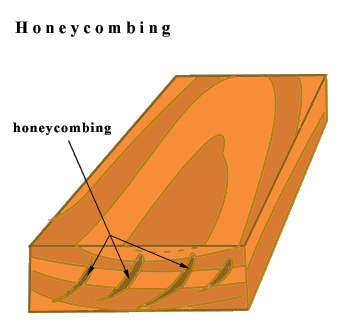
Honeycombing:
if a case-hardened board is not seasoned properly the inner core
will spilt like a honeycomb.
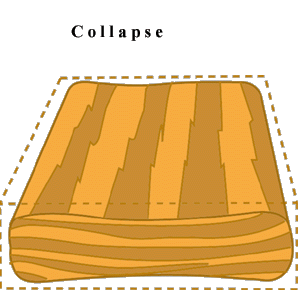
Collapse: the
cells of timber are flattened due to excessive shrinkage.
|
![]()